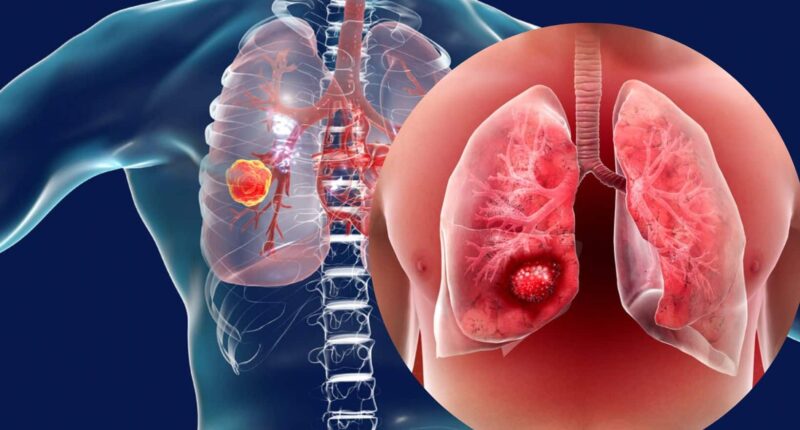 Are You At Risk of Lung Cancer If Your Family Has Suffered The Disease?
Are You At Risk of Lung Cancer If Your Family Has Suffered The Disease?
Is lung cancer genetic? Many of you must have asked this question, or have thought about it. Today, in this article, we will tell you the truth. Cancer is one of the most common medical conditions in people today. The reason for an increase in reported cancer cases can be attributed to lifestyle changes, an increase in pollution, cigarette smoking, complicated interactions between genes, alcohol intake, and efficient diagnosis. By the end of the next five years, cancer incidences in India are expected to increase by 12%, according to the Indian Council of Medical Research (ICMR). TheHealthSite.com spoke to Dr. Samir D. Garde MD Chest Medicine; T.D.D, FCCP(USA), Interventional pulmonologist Nanavati Hospital, Mumbai, to understand the condition better.
For both men and women, lung cancer is by far the most common cancer that causes death. Lung cancer claims more lives each year than colon, breast, and prostate cancers combined. In India, it is anticipated that there will be more than 1 lakh new instances of lung cancer over the course of the next five years.
The factors that increase the chance of developing lung cancer are:
- Smoking, as 90% of cases occur due to smoking
- Genetic mutations also increase the risk of lung cancer
- Air pollution is another factor that affects the lungs and can increase the risk of lung cancer
Genes And Lung Cancer
While not all lung cancer cases are genetic, about 15% of the cases are due to genetic mutations.
One may inherit gene changes from one’s parents. Genetic alterations to a chromosome increase the risk of lung cancer. Apart from this some people struggle to get rid of cancer-causing substances like tobacco smoke, air pollution, medical history/ hereditary reasons also at the risk of developing lung cancer. Additionally, some people with a faulty gene make a protein called EGFR so they suffer from a type of lung cancer called non-small cell lung cancer. This specific problem is seen more in young, non-smoking patients.
Sometimes in lung cancer, genetic changes are not inherited but acquired in a person’s lifetime. These acquired changes are called somatic mutations. In lung cancers with somatic mutations, the TP53 gene is common. The TP53 gene instructs the production of the p53 protein, which is in the nuclei of cells throughout the body and directly binds to DNA. The protein monitors DNA damage to control cell division and growth. TP53 gene mutations result in the production of an altered p53 protein. This p53 protein cannot bind to DNA. As the protein has been changed, cells can accumulate DNA damage because it is unable to efficiently control cell growth. Such cells might continue to divide uncontrollably, which would promote the development of tumours. Lung cancer occurs when these kinds of genetic alterations take place in the lungs.
As lung cancer can be fatal, it is important to get diagnosed early and start treatment as soon as possible.
Diagnosing Lung Cancer On Time
- Endobronchial ultrasound (EBUS) – It is a process to detect whether lung cancer has spread to the lymph nodes in the center of the chest, close to the windpipe.
- Fine-needle biopsies (FNB) – It takes samples of lumps or growths in the lung or other tissues in the chest, such as lymph nodes or the lining of the lungs.
- Bronchoscopy – It is a procedure to examine the lungs inside. A bronchoscope, a short, flexible tube with a light, lens, or tiny camera on the end, is used for this. The tube is inserted into your trachea (windpipe) through your nose or mouth, down your neck, and into the bronchi and bronchioles of your lungs.
Careful analysis and diagnosis reveal what type of lung cancer is prevalent, which helps guide the treatment. Numbers paint a sad picture, but we are making progress every day to give us better ways and procedures to diagnose the disease at an early age. Until then, we need to be aware of and recognize the symptoms.
Are You At Risk of Lung Cancer | Home










